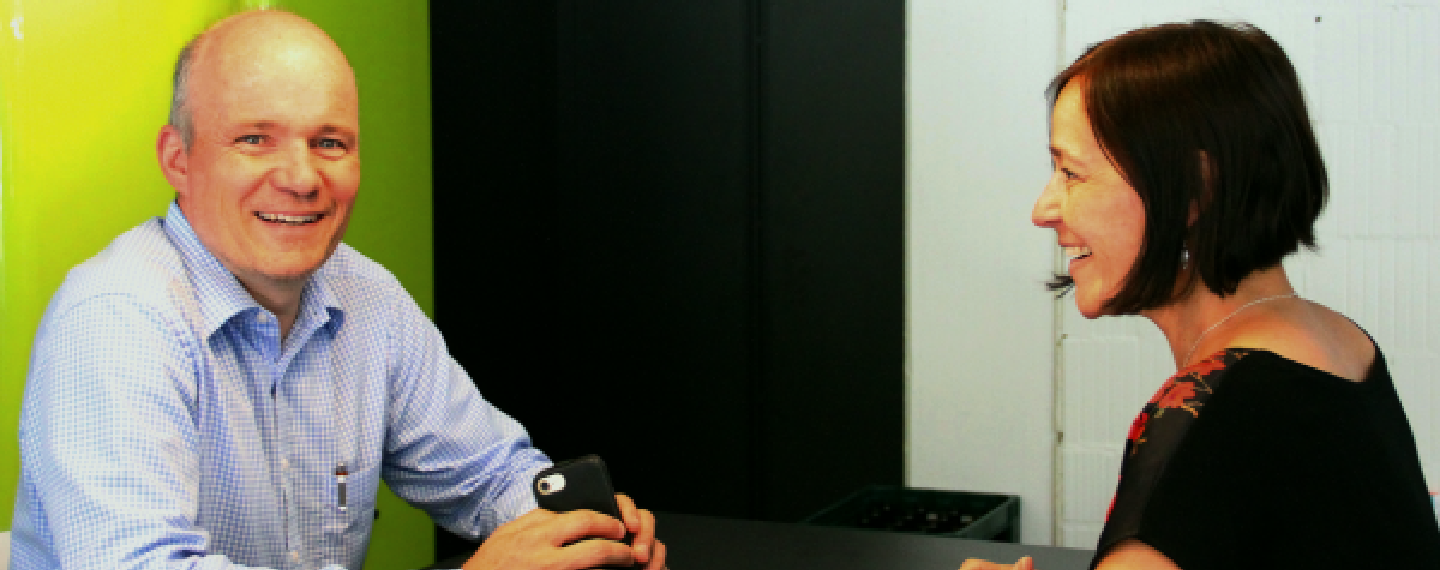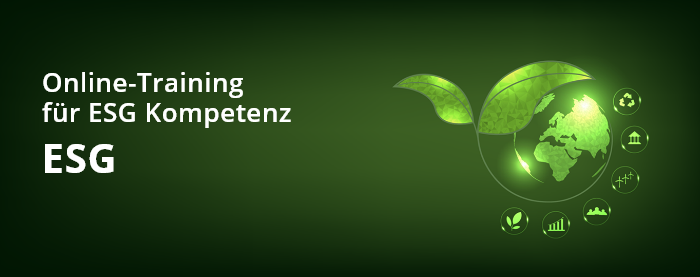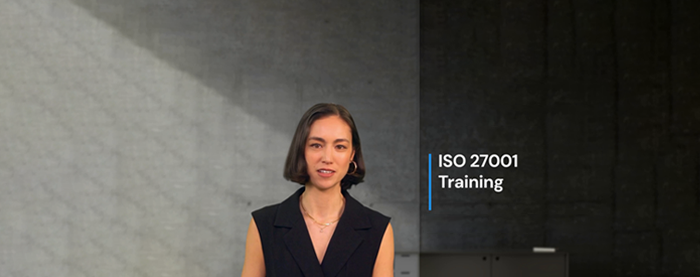
- News
- Interview about: «Learning House, Competence Set and Learning Hub»
- News
- Interview about: «Learning House, Competence Set and Learning Hub»

- News
Interview about: «Learning House, Competence Set and Learning Hub»
Interview with Daniel Stoller-Schai, Head Sales & Marketing, CREALOGIX
SU FRANKE (SF): DANIEL, YOU HAVE CONTRIBUTED TO THE “HANDBUCH KOMPETENZENTWICKLUNG IM NETZ. BAUSTEINE EINER NEUEN LERNWELT”. YOUR PART IS MAINLY ABOUT THE LEARNING HOUSE AND THE SO-CALLED DIGITAL LEARNING HUB. WHAT IS A LEARNING HOUSE?
Daniel Stoller-Schai (DSS): The Lernhaus is a consulting model for digital learning initiatives and projects in companies. A digital learning project is often started with the evaluation of learning technologies and systems. Experience shows that a top-down approach would often be better. If a clear digital learning strategy is available, the forms of learning, the required competencies and the required technologies can be derived from it. In this sense, the discussion around the learning house begins with the “roof”, namely the learning strategy and continues to the “floors”, namely the forms of learning. This then initiates the discussion about competences and shows which “foundation”, namely learning technologies and systems, are necessary. As we are also practitioners, we know that this does not always happen in a textbook way. The charm of the learning house is that you can start with any component and automatically reach the other components. So sooner or later, if a company wants to enter the subject of digital learning via the “Competencies” component, the questions about the strategic “roof”, the required forms of learning and the technologies will simply arise. But you don’t have to overestimate the learning house; it is simply a good communication tool in the conception phase with a new or existing customer.
SF: AND WHAT CAN WE UNDERSTAND UNDER A DIGITAL LEARNING HUB?
DSS: The Digital Learning Hub is our technical vision of what learning can look like in the future. For insiders, one could also say it is our approach “Beyond Learning Management System”. We go beyond the limitations of a learning management system and place it in a larger context. The Digital Learning Hub – or as we now call it – the “Swiss Learning Hub” is an education marketplace for basic education (vocational education), corporate education for employees and customers and higher education. The Swiss Learning Hub is based on a cloud-based architecture hosted in Switzerland. It is easy and quick to set up a new client for a customer. This means that digital learning can be started quickly and easily. If required, additional components can be added, such as video streaming, authoring tools, test systems, gamification functions, etc. If a customer has several clients, learning content can be easily exchanged between the clients. The Swiss Learning Hub is simply an ingenious system to cover all aspects of digital learning.
SF: IS THERE SOME KIND OF TRANSITION PERIOD?
DSS: Transitional period? Yes, you can be skipped if you take too much time. In fact, globalization, digitalization, mass customization, etc. are omnipresent, even if perhaps not every company is equally far yet. It must take time. But the changes are happening very quickly. Often we don’t even notice what changes because we are so involved ourselves. Two years ago we gave ourselves a new claim that expresses how we see this change and what our contribution should be: „Transform Your Business with Digital Learning“. We cover the digital learning part and help companies and organisations to expand and enrich their business models with digital forms of learning.
SF: YOU WRITE THAT COMPANIES NEED NETWORKED OR MORE NETWORKED COMPETENCE DEVELOPMENT FOR EMPLOYEES AND CUSTOMERS AND MUST THINK IN THREE PERSPECTIVES: STRATEGY, METHODOLOGY DIDACTICS AND TECHNOLOGY. WHAT ARE THE BASIC STATEMENTS ON EACH OF THE THREE POINTS FOR SOMEONE WHO IS NOT YET INTENSIVELY INVOLVED WITH THE TOPIC?
DSS: About the strategy: Educational measures need to be strategically oriented. Ideally, this strategic orientation is linked to the corporate strategy. If a company knows what it wants to achieve and which aspects of this „Learning & Development“ should cover, then the education strategy is relatively easy to derive. However, we often find that this is not the case. Many educational measures have no strategic relevance.
Conclusion: An education strategy is a central reference framework for all forms of learning in companies and organisations.
About the methodology didactics: In many cases, digital learning is implemented relatively simply. A Learning Management System is equipped with simple learning modules, which are completed with a test. This is not enough to implement motivating and sustainable digital learning processes. According to Dr. Michael Allen – a pioneer in the digital learning community – digital learning measures should achieve the following goals:
– Enhance the learner’s motivation (desire) to learn
– Focus the learner on behavior-enhancing tasks
– Create meaningful and memorable learning experiences which transfer to effective job performance
Fazit: Learning design is the art of integrating different forms of learning into a (digital) learning process in such a way that the learning objectives are achieved and the motivation to learn is increased.
About the technology: Appropriate technologies are needed for the implementation of digital forms of learning. There are various tools for creating digital learning media and systems, and platforms to make these learning media available. In companies these are learning management systems, web conferencing systems and social business platforms. Outside the company it can be anything. Jane Hart – a specialist in social learning – has been keeping a list of the 100 most important learning tools for years. Twitter, YouTube and Google Search have been at the top for years.
Conclusion: Our Swiss Learning Hub brings all these aspects together and is thus technically a future-oriented approach for all forms of digital learning. The MISSION-Paper can be requested here.
SF: WHAT IS THE MOST IMPORTANT CHANGE YOU WISH FOR IN COMPANIES AND INSTITUTIONS?
DSS: Learning is often prevented by resistance to change. I wish for less fear and restraint when it comes to getting involved with new things. This applies above all to the actual learning professionals in the companies. Trainers, training specialists etc. have to continuously make new learning experiences themselves in order to be able to assess their potential. This is especially true for digital learning. If I have no experience with learning modules, gamification, eBooks, interactive videos, webinars, 3D worlds or learning communities, then I will not integrate them into my learning designs and stick to what I know.
SF: WHERE DO WE STAND TODAY ON THE SUBJECT OF DIGITAL LEARNING IN SWITZERLAND OR IN GERMAN-SPEAKING COUNTRIES?
DSS: This is difficult to answer, because there are many characteristics. There are companies that have been using digital learning methods for decades and they are part of their corporate DNA. Others are just starting with it. In general, one can safely say that anything is possible with regard to digital learning in the DACH (German and Swiss) region. The knowledge, technologies and experience are there to implement truly digital “state-of-the-art” learning processes for employee training, but also customer training. As a full service provider in the field of digital learning, we can cover every aspect of the “digital learning value chain”.
SF: WHAT DOES LEARNING MEAN FOR YOU PERSONALLY?
DSS: Learning is the topic that has interested, fascinated and inspired me for over 30 years. I have left the formal training phase behind me for a long time and am more on the self-directed and informal path. I find it brilliant to be able to find out almost everything in real time at any time via Internet access. For example, when I read in Robert Byron’s book about his 1925 trip to Europe where he and his friends in Florence looked at a certain picture in a church, in a few seconds I have exactly this picture on my screen. That’s just fantastic. But I also think it is important that one always learns very concretely, with one’s hands to a certain extent. That is why gardening, handicrafts etc. are also important. That’s a whole different kind of learning. The most difficult learning is the one where I have to leave my “comfort zone”. For example, if I had to speak Russian in half a year, it would be quite a challenge. One exposes oneself to such learning processes less and less in old age, because it is strenuous and not very fun-oriented. However, this also reduces the demands on the brain and it becomes “comfortable”.
SF: IS THERE AN AGE AT WHICH ONE BEGINS TO LEARN DIFFERENTLY?
DSS: One certainly learns different things in a different way at every age. When I watch my little granddaughter discovering the world, I am fascinated by the speed with which words, experiences, observations, etc. are absorbed and linked together to form new concepts. As just mentioned, you learn differently at every stage of life. If all the training pressure is eliminated or eased, one generally does less or even too little. Learning is like training. The more I do it, the fitter I am. This applies until old age, by the way.
SF: WHAT CAN I PERSONALLY LOOK AT FROM YOU IF I WANT TO LEARN BETTER MYSELF?
DSS: All my digital learning texts that I have written in recent years can be found on Scribd.com. Unfortunately you have to register to see documents. I’m thinking about moving my “library” to a different platform in the medium term. I am thinking of OER (Open Educational Resources) platforms. Then you will find one or the other on Slideshare and Twitter. And otherwise we simply meet for a coffee – e.g. in one of the many co-working spaces in Zurich – and exchange views on digital learning.
Su Franke
Franke is a consultant, speaker and lecturer in online communication. Su Franke founded Corporate Dialog GmbH in 2011 to support companies with online communication strategies and practical implementation. With the slogan “Communicate instead of advertise” it stands for dialogue-oriented communication with added value and for digital transformation.

Dr. Daniel Stoller-Schai
Daniel Stoller-Schai, Dr. oec. HSG, studied educational sciences, computer science and psychology at the University of Zurich. He then worked in the field of adult education and educational research. At the University of St. Gallen he was involved in setting up the Learning Center and earned his doctorate on the subject of e-Collaboration. As Digital Learning Manager, he gained experience in the global use of Internet-based learning technologies at Phonak and UBS. He works as Head Sales & Marketing of the Digital Learning business unit for Crealogix. Daniel Stoller-Schai is a member of the board of the European Corporate Learning Association (ECLA) and head of the Swiss eLearning Conference (www.selc.ch), which will take place for the 9th time this year.




